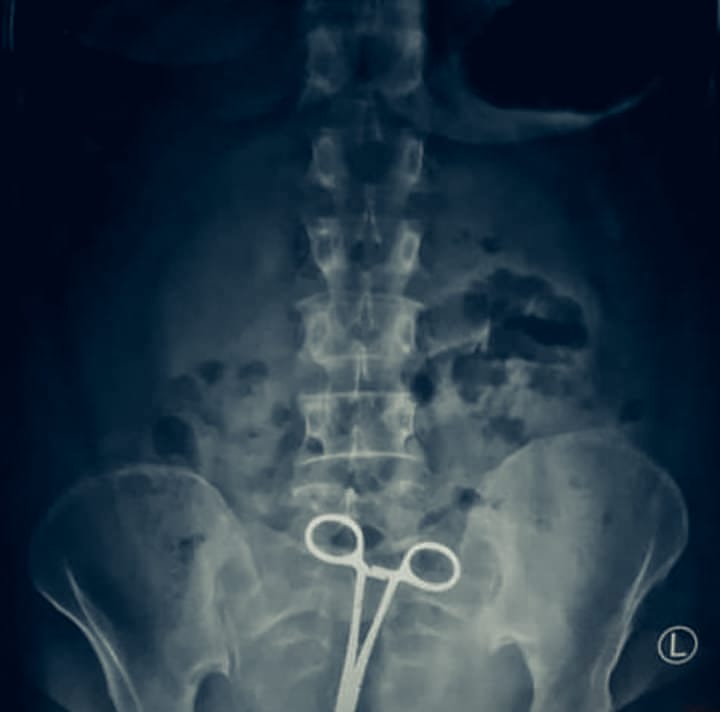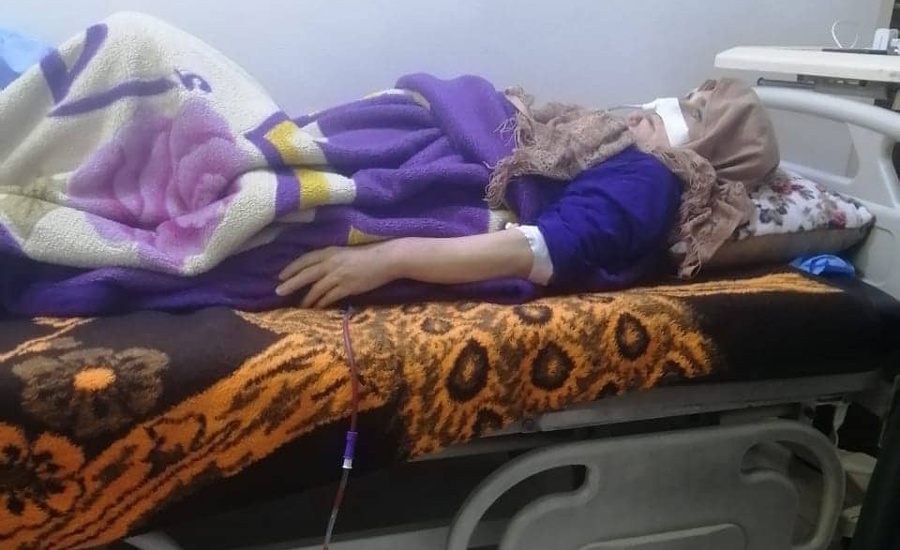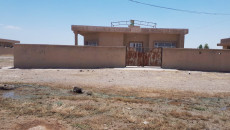35 days after performing a surgery for a woman in a private hospital in the city of Kirkuk, it became clear that the medical team forgot a pair of scissors in her stomach, and because of that medical error, she underwent another surgery, and she is now in an unstable health condition.
Shiler Omar, 45, from Chamchamal district on Sulaymaniyah-Kirkuk highway, had a surgery on August 5 at Dar Al-Salaam Private Hospital in Kirkuk. Three days ago, it became clear the doctors had forgotten scissors in her stomach, so she underwent another operation to remove the scissors.
Sherko Qader, husband of the patient named Shaleer, told (KirkukNow), "There was a tumor weighing 7 kilograms in my wife's abdomen, so the doctor, Faiza Saber, decided to perform an operation for her to remove the tumor.”
After the operation, my wife was feeling pains in her stomach, we reviewed several Doctors, and we did not find the cause of these pains, until we went to Azadi Teaching Hospital in Kirkuk, and the x-rays showed the presence of surgical scissors in her stomach.”

The patient's second operation was performed three days ago and the scissors were removed from her stomach.
“The scissors were taken out, but my wife’s health condition is unstable and she cannot eat and drink,” Qader bitterly said. “For two days, we wet her mouth with water.”
Shiler’s family has filed a lawsuit against Dr. Faiza Saber, an obstetrician-gynecologist.
Dr. Faiza Saber told KirkukNow, "I am not the culprit in this case, but it was my duty to help the surgeon who was in the operation theater to check and calculate the medical supplies, before and after entering the operating room."
Dr. Fayza, who herself performed the patient’s second operation, said, “The Ministry of Health did not obligate doctors to calculate medical supplies after performing surgeries.”
Faiza Saber threatened to file a complaint against the people who consider her guilty and said, "I will also file a case against those who tarnish my reputation."
Iraq’s healthcare system which was once one of the most advanced in the region now is in serious crisis. There’s a shortage of drugs and the medical staff to administer it. Over the past three decades the country has been ravaged by Iraqi-Iran war, Saddam Hussein’s invasion of Kuwait, ousting of Saddam regime followed by sectarian violence, the war against al-Qaeda and the rise of Islamic State in Iraq and Syria ISIS.
The political chaos after 2003, pushed an estimated 15,000 out of 52,000 registered Iraqi doctors to leave the country. The young student doctors primarily seek training and life abroad rather than permanent state employment.






